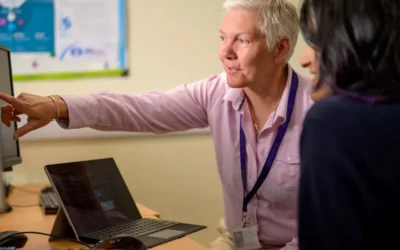Independence – Situational Awareness and You
Lucidea
People who need people may indeed be the luckiest people in the world, but if you depend on others in order to do your job successfully, you’re going to need a strategy that embraces both daily partnership and situational independence.
Very few people do their work entirely alone. We all depend on other individuals or even departments to team up with us and/or support us in our efforts, and we reciprocate. That’s how organizations achieve their goals over time. However, being dependent on others can easily slow projects down when there are limited resources and competing priorities. Information professionals need to cultivate great situational awareness so that they can recognize interdependencies or scenarios that will lead to failure, and develop strategies for avoiding them.
For knowledge managers and special librarians, situational independence is earned, and is often an outcome of daily partnership. The IT department and the Executive Team are very important to a successful library or knowledge center, and establishing credibility with them is critical to independence.
There are several factors that are important to controlling departmental progress and reputation through independence, such as the ability to:
- Configure and customize knowledge management software or an ILS without relying on IT
- Provide superior levels of accessibility and reliability
- Offer tools with minimal training required
- Demonstrate a strong ROI (increased usage, cost reduction, etc.)
In order for the IT Manager to feel comfortable with your approach to library and KM software, you’ll need to establish your credibility. This probably includes presenting use cases and/or business cases – tools that the IT department relies on in their own work. You’ll need to establish the credibility of your library software vendor with them as well; introducing them to your sales executive and even to your technical support contact is important. If you trust your vendor and have a great partnership with them, make sure your IT Manager feels the same way.
With regard to the Executive Team, one way to earn departmental independence is by demonstrating a great ROI (return on investment) through regular analytics and reporting. When you’ve established your operational prowess, leadership will feel comfortable advocating for you internally and will trust you to make the right choices, implement the right tools and lead the right initiatives.
Partnership and situational independence are once again in concert with regard to your end users. Facilitating independence for “information consumers” is extremely important and valuable. As mentioned by panelists during our SLA 2014 panel discussion Adapt, Act and Thrive, providing end users with desktop (or tablet top!) tools that are intuitive and easy to use is priceless. Please click here to download a white paper developed with what we learned about independence and many other elements of the sustainable library during the panel.
Similar Posts
Lucidea Press Releases New Museum CMS Title Demystifying Data Preparation
The latest title from Lucidea Press offers advice from museum expert Rachael Cristine Woody; Demystifying Data Preparation for a New CMS.
Why Senior Leadership by Example is Important for Knowledge Management Success
Getting C-level advocacy for KM is critical for success; senior leaders should provide funding, demonstrate support, and lead by example.
How to Incorporate Interns in Museum CMS Projects: Data Cleanup and Refinement
A museum expert details how interns can be successfully included in museum CMS projects at the data cleanup and refinement stage.
Interview with Susannah Barnes about the SLA Data Community
Susannah Barnes is the Co-Lead of the Data Community for the Special Libraries Association. If you work with data in any capacity, this interview will be of interest to you.
Hosting service
Enjoy all of the benefits of your Lucidea solution with secure, reliable, stress free hosting
Programs & incentives
No matter your size or budget, we’ve got you covered, today and tomorrow


